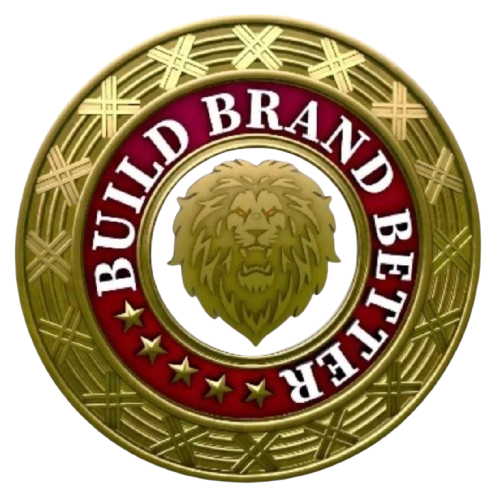
Mastering Online Reputation Management (ORM)
In today’s digital age, your brand’s reputation on the internet matters more than ever before. With the ever-increasing use of online platforms, your business’s image can be shaped and molded by various forces, both internal and external. This is where Online Reputation Management (ORM) becomes a crucial element of maintaining a positive and influential presence in the digital world.
Understanding ORM
Online Reputation Management is all about controlling, monitoring, and influencing what appears when people search for your brand online. It’s about actively managing your brand’s image across the vast digital landscape. In this article, we will delve deeper into ORM, exploring four key aspects.
Paid Media:
Paid media is an essential component of ORM. It involves closely monitoring your competitors’ advertising strategies to make sure they don’t harm your brand’s reputation. One common strategy here is called Comparative Advertising. This is when your competitors try to position their products or services as better than yours.
For instance, if you own a pizza place, a competitor might run ads claiming that their pizza is the “cheesiest in town.” To protect your brand, you’d want to keep an eye on these ads and respond if necessary.
Earned Media:

Earned media is all about what others say or write about your brand without your direct involvement. This can take many forms:
External Articles: Sometimes, independent sources write articles that mention or feature your brand. These could be reviews, interviews, or stories about your products or services.
Press Coverage: News stories or press releases related to your brand can have a significant impact on your online reputation. Positive news coverage can boost your image, while negative stories can harm it.
Blogs and Vlogs: Independent bloggers and vloggers might share their opinions or experiences with your products or services. These personal endorsements can influence how others perceive your brand.
Forums: Online forums and communities often have discussions about various brands. Monitoring these conversations can help you understand what people are saying about your brand and address any concerns.
Review Sites: Platforms like Trustpilot, Google My Business, Social Reviews, and Glassdoor allow customers to leave reviews and ratings. Positive reviews can enhance your reputation, while negative ones can damage it. Responding to reviews, both positive and negative, is crucial.
Shared Media:
Shared media focuses on content related to your brand that appears on social media platforms. In today’s interconnected world, monitoring shared media is vital. It means keeping an eye on mentions of your brand on other business pages and ensuring that your brand is portrayed positively. It’s not just about tracking business pages but also about understanding how individual users perceive and interact with your brand.
For example, if a customer posts a complaint about your product on their social media account, addressing it promptly and professionally can demonstrate your commitment to customer satisfaction.
Owned Media:
Owned media consists of the online assets that your brand directly controls. These include your website, blog, podcasts, whitepapers, webinars, and more. These platforms are your chance to shape and reinforce your brand’s identity.
Your website, for instance, should reflect your brand’s values and mission. Regularly publishing high-quality content on your blog can establish your brand as an authority in your industry. Webinars and podcasts can help you engage with your audience on a deeper level.
The Significance of ORM
Why is Online Reputation Management so important? It’s because your online reputation directly impacts consumer behavior and business success:
Influence on Buying Decisions
Research indicates that a whopping 81% of consumers conduct online research before making a purchase. Having a positive online reputation can sway these decisions in your favor. When potential customers see glowing reviews and a strong online presence, they are more likely to choose your products or services.
Online Word-of-Mouth (EWOM)
Think of online reputation as the modern-day equivalent of word-of-mouth marketing. A positive online reputation can lead to organic, positive conversations about your brand. People trust the opinions of others, especially when they come from unbiased sources.
Handling Negative Reviews
In the digital world, negative reviews and comments are inevitable. However, with a well-crafted ORM strategy, you have the opportunity to turn these negative experiences into positive ones. Research shows that 70% of customers are willing to give a brand a second chance if their complaints are addressed reasonably.
Valuable Feedback
Monitoring your online reputation provides invaluable insights into customer sentiments and areas for improvement. By actively listening to what your audience is saying, you can make informed decisions to enhance your products or services.
The Benefits of Effective ORM
Investing in a robust ORM strategy can yield numerous benefits for your brand:
- Increased Customer Acquisition
A good ORM strategy can lead to more referrals, with studies suggesting that 5% of new business comes from word-of-mouth recommendations. When your existing customers are happy and actively promote your brand, it attracts new customers.
- Enhanced Local SEO
Online reputation management contributes significantly to your local search engine optimization efforts. Positive online reviews and mentions of your brand improve your local ranking, which is vital for attracting local customers. Studies show that online reviews account for approximately 9.8% of overall ranking factors and 7.2% for localized organic results.
- Improved Branding
Maintaining a positive online reputation is relevant not only at the top of the sales funnel but also for fostering customer loyalty. When your brand consistently delivers quality and positive experiences, it strengthens your brand’s image and builds trust with your audience.
In conclusion, Online Reputation Management is not a passive endeavor but an active, ongoing process that can significantly impact your brand’s success. At Build Brand Better, we understand the importance of ORM and offer comprehensive solutions to ensure your brand’s online reputation is not just managed but optimized for growth. Don’t just let your online reputation happen; make it happen with us!
FAQ
Q1: What is Online Reputation Management (ORM)?
A1: Online Reputation Management, or ORM, is the practice of controlling and influencing how your brand or personal identity is perceived on the internet. It’s about managing what people see and read about you or your business online.
Q2: Why is ORM important?
A2: ORM is essential because your online reputation can significantly impact your success. Positive reviews and content can attract more customers, while negative ones can drive them away. A good online reputation builds trust.
Q3: What is Paid Media and its role in ORM?
A3: Paid Media involves monitoring your competitors’ advertising strategies and making sure they don’t harm your brand. For example, if a competitor claims their product is better than yours, you want to respond to protect your brand’s reputation.
Q4: What is Earned Media, and how does it affect ORM?
A4: Earned Media is what others say or write about your brand without your direct involvement. This includes reviews, articles, blogs, and social media posts. Positive earned media can boost your reputation, while negative can harm it.
Q5: How can I manage Earned Media effectively?
A5: You can manage earned media by monitoring what people are saying about your brand and responding appropriately. Address negative comments professionally and thank those who leave positive feedback.
For more Blogs:- www.buildbrandbetter.io/blog/
